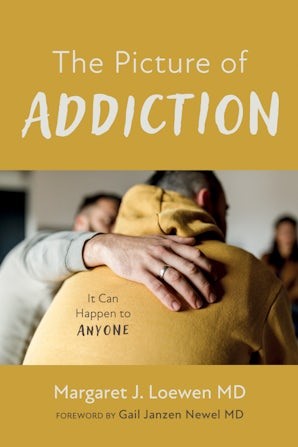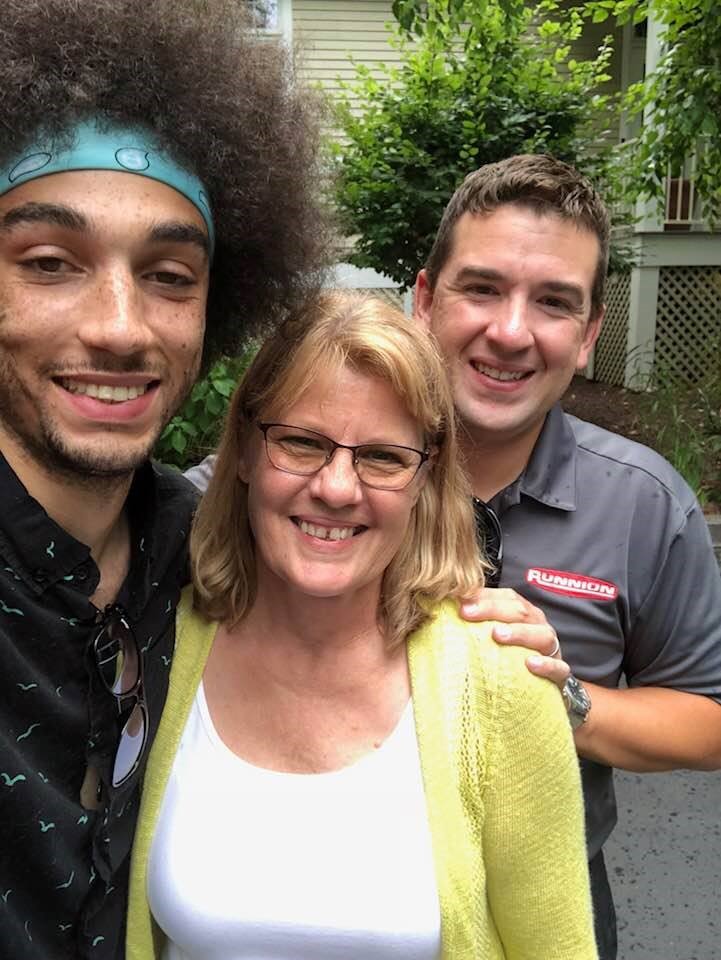Author tackles opioid epidemic
Advertisement
An American emergency room physician is hoping the story of her son will encourage other emergency rooms across North America to adopt potentially life-saving protocols.
Margaret Loewen’s new book, The Picture of Addiction: It Can Happen to Anyone, chronicles the story of learning about opioids in a rural Midwest community as she began a medical practice.
It also followed the story of her son who tried heroin, leading him down a dark path.

The story follows them both as she tries to keep her son alive, introduce new treatments that can save lives, and inspire other medical providers to do the same.
Margaret boasts a somewhat tenuous connection to Steinbach.
She was born in Steinbach to parents Melvin and Elfrieda Loewen. Melvin was also born in Steinbach.
However, before her first year was up, she and her family had moved, eventually becoming missionaries in Congo.
Evacuated from the country due to a rebellion she returned to Steinbach where she completed part of her Grade 5 education.
Now living and practicing in the American Midwest, Margaret said she knew this story had to be told.
At that time, she reached out to fellow doctor Gail Janzen Newel, who lost her child to an opioid overdose.
While Janzen Newel chose not to co-write the book, she did submit a forward, outlining the fatal day she lost her son in 2016.
“She was still so traumatized by her son’s death that she could not put to words how that had come about and what she felt about it,” she said.
That experience did not happen to Loewen, whose son is now thriving since beginning recovery in 2020, but as the book reveals, that was not always the expected result.
Margaret’s son, identified as Bez in the book is Chris Payne.
While she began taking notes of what he and the family was going through in 2016, she knew it wouldn’t be publishable until recovery began.
And when that process began, she received enthusiastic participation from Chris.
“Four years ago, when he was in recovery in a community corrections centre in Alamosa (Colorado) I was interviewing him and recording our conversation because I didn’t’ want to have to ask him these difficult questions more than once,” she said. “He said, ‘You know Mom, we need to write a book’”.
“That’s when it really started to gel, in 2020, that this was really something he wanted me to do and he was really behind me which made it possible for me to tell his story,” she said.
The story holds nothing back, revealing the despair and danger Chris was in, and the effect on family and friends.
For his willingness to share, Margaret says she considers him a hero.
“He was willing and actually advocating for the story to be told, so that he and I could help others learn about the disease.”
And Margaret said knowing it’s a disease is important in reducing the stigma attached. Her book includes a section on how neuroscience has changed and how that effects treatment.

And while the story itself is moving enough to be a book in its own right, Margaret admitted she wanted something more.
“I started to realize as I got closer to publication that what I really wanted to do is to reach out to emergency medicine physicians, because they’re the next group of professionals that really need to get involved in treating this disease,” she said.
Margaret was a pioneer in introducing a medicine called buprenorphine. When emergency departments provide the first dose when a person with opioid use disorder is in withdrawal, then refer to out-patient clinics plus community programs to provide jobs and housing, people with the disease can recover.
It’s her goal to see this adopted in every hospital, something she said still hasn’t happened in the U.S.
In Canada it’s tough to get a clear picture of its use. Studies and articles indicate that its use is growing across Canada emergency departments as well, but statistics are unavailable.
That’s why she included a section called ‘An Emergency Physician’s Guide to Providing Medication Assisted Treatment’.
“If every ER in the world would have the medication… it would be possible to save a lot of lives and we could really turn this epidemic around, I believe,” she said.
She’s already received positive feedback particularly from the community she practiced in, where the opioid epidemic was initially created by liberal prescribing of the drugs. As physicians realized the error of that strategy, those in withdrawal have turned to heroin to get their fix.
She hopes the book will be well received by both the general public and the medical profession, saying she’d love to travel and share her knowledge with health practitioners.
She will soon be heading to Riverside, California to speak at the Health Officers Annual Conference.
“I wanted the beginning to be a motivator and the end of the book to be the step-by-step process that a physician could use,” she said. “Instead of just saying this is what you have to do, we’re saying this is why this is important and this is why physicians need to be doing their part because it’s a small piece, a very small piece, of the whole picture of what people who are trying to recover need from their communities and from their hospitals,” she said.
Initially, Margaret said, even her own hospital was reluctant to change protocols, fearing they would be overwhelmed by opioid addicts seeking help. That didn’t happen, though they did manage to help many people.
Margaret said she continues to be inspired by her son and the work she is doing.
“I want to just be that advocate for changing the course of the direction of this disease in our country and hopefully prevent it from happening in Canada as well,” she said.
According to the Institute for Health Metrics, using 2021 numbers, the U.S. had a death rate from opioids of 15.4 deaths per 100,000 while Canada was in second place with 6.9 deaths per 100,000.
The Picture of Addiction: It Can Happen to Anyone is available on Amazon.ca and where books are sold.
